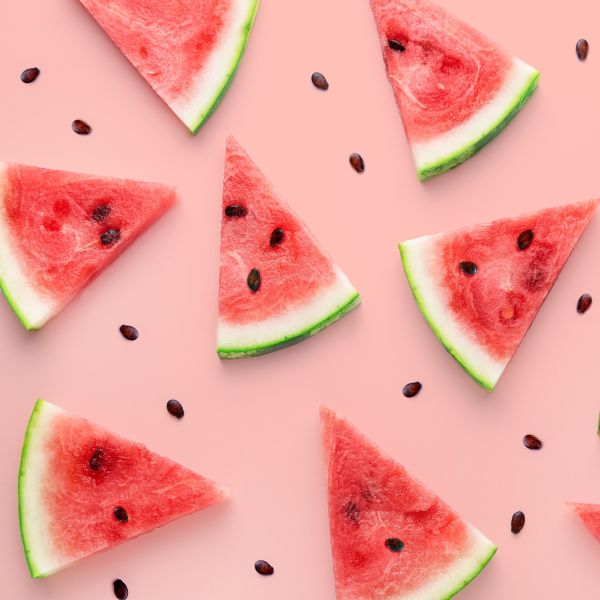Watermelon is a sweet and refreshing low calorie summer snack. It provides hydration and also essential nutrients, including vitamins, minerals, and antioxidants.
Along with cantaloupe, honeydew, and cucumber, watermelons are a member of the Cucurbitaceae family.
Watermelon contains a good amount of both potassium and magnesium, two important nutrients used to help remedy conditions like high blood pressure. Consuming proper amounts of potassium and magnesium from a nutritious diet seems to be associated with improved heart health, according to research, along with a decreased risk of death from heart disease.
A review published in the journal Advances in Nutrition showed that eating plenty of potassium-rich foods like fruits and vegetables can positively impact blood pressure levels, which may be useful in reducing the risk of conditions such as stroke and heart attacks.
In addition to the potential benefits of watermelon juice, this fruit also packs a good amount of vitamin C into each serving. Vitamin C has been shown to protect cartilage and bones, aid in the repair of tendons and ligaments, and help speed up wound healing.
Potassium and magnesium, two nutrients that are also found in watermelons, are important for muscle recovery and pain relief. Potassium, in particular, aids in the prevention of muscle cramps following exercise and helps you heal from injury more quickly.
Studies have shown that the potassium found in fruits and vegetables is very helpful in cleaning toxins and washing out waste from the blood, helping prevent kidney stones.
Watermelon benefits also include being a natural diuretic. It helps increase urine production to transport waste and toxins out of the body to protect against kidney stones.
One of the top benefits of watermelon is its high water content. In fact, it is estimated to be composed of about 91 percent water, which can aid in detoxification and help rid the body of excess water and fluids, relieving uncomfortable bloating and swelling.
Potassium and magnesium are also important for detoxification. Potassium acts as an electrolyte and promotes circulatory health while also helping manage blood flow and hydration levels within the body, allowing oxygen to reach your cells.
At the same time, magnesium reduces water retention in the gut to beat bloating and help you lose water weight.
Watermelon acts as a potent cancer-fighting food, squeezing a hearty dose of antioxidants and watermelon health benefits into each serving.
An important benefit of watermelon for men is that lycopene, one of the main carotenoids found in the fruit, has been linked to a lower risk of prostate cancer in some studies. Research also shows that lycopene plays a part in keeping cell membranes strong so they can protect themselves from toxins that can potentially cause cell death or mutation.
Watermelon is also a great supplier of antioxidants vitamin C and vitamin A, both of which help fight free radical damage and prevent DNA mutation to block the formation of cancerous cells. Studies have also shown that high doses of vitamin C can enhance the cancer-fighting effects of certain drugs used in chemotherapy while also reducing adverse side effects of traditional cancer treatments.
Important nutrients that play a role in protecting eye health — including beta-carotene, vitamin A, vitamin C, lutein and zeaxanthin — are also housed in this giant fruit and sit among the many benefits of watermelon. Studies have shown that a serious vitamin A deficiency, for example, can lead to macular degeneration, a condition characterized by the thickening of the cornea that could eventually lead to blindness.
Despite being rich in a multitude of important vitamins and minerals, there are a low amount of calories in watermelon, making it a great addition to a nutritious weight loss diet. For this reason, watermelon benefits weight loss by promoting satiety and curbing cravings to keep you on track toward your health goals.
Post time: Jun-23-2020
